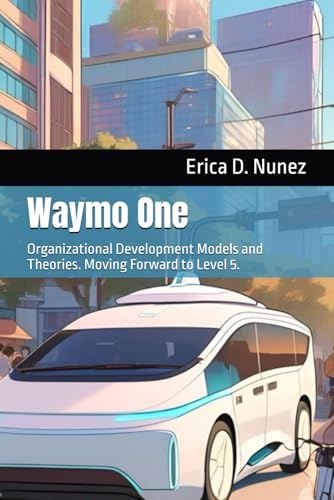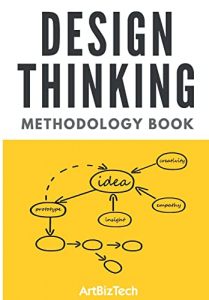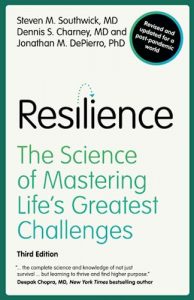1. Waymo One: Organizational Development Models and Theories. Moving forward to Level 5. (Autonomous Vehicles) by Erica D. Nunez
As the world transitions into the realm of autonomous driving, “Waymo One” stands out as a foundational text that delves into the organizational frameworks essential for the advancement of Level 5 autonomy. Erica D. Nunez offers readers comprehensive insights into the developmental models driving this revolutionary change. The book meticulously analyzes challenges and proposes strategies that organizations must adopt to thrive in an increasingly automated landscape. This book is a must-read for anyone interested in understanding the intricacies behind the technology that will shape our future mobility.
2. Autonomous Vehicles: Opportunities, Strategies, and Challenges: 2024 Updated Fifth Edition by Michael E. McGrath
This updated edition by Michael E. McGrath provides readers with a thorough exploration of autonomous vehicles, addressing both the opportunities they present and the challenges that come with them. The insights into current strategies reveal the fast-paced evolution of technology and its implications for industries and society. McGrath’s expertise delivers a balanced view of how businesses can leverage this technological shift while navigating potential hurdles. Essential for industry professionals and enthusiasts alike, this book serves as a roadmap to understanding autonomous driving today.
3. Autonomous Vehicle Engineering Step by Step: A Structured Introduction to EV Design & Technology by Tom Wilson
Tom Wilson’s “Autonomous Vehicle Engineering Step by Step” serves as an invaluable resource for anyone wishing to gain a practical understanding of electric vehicle design and technology. The book breaks down the intricate elements of EV engineering, making it accessible to both beginners and experienced professionals. Wilson’s structured approach to complex concepts enables readers to develop the skills necessary to contribute to this exciting field. For those passionate about vehicle design, this guide is an essential companion on the road to innovation.
4. Autonomous Vehicle Ethics: The Trolley Problem and Beyond by Ryan Jenkins, David Cerný, and Tomáš Hríbek
“Autonomous Vehicle Ethics” tackles one of the most pressing philosophical dilemmas of our time: the ethical implications of autonomous decisions in vehicles, epitomized by the Trolley Problem. Jenkins, Cerný, and Hríbek delve into the ethical questions surrounding algorithmic decision-making in critical situations. This book is crucial for technologists, ethicists, and policymakers grappling with the moral responsibilities involved in autonomous vehicle development. It encourages a broader discussion about the societal impact of autonomous technology.
5. Parking the Future: How Autonomous Vehicles Will Transform Urban Mobility by Brooke Krieger
In “Parking the Future,” Brooke Krieger brilliantly illustrates how autonomous vehicles will revolutionize urban mobility. She explores the potential changes in city infrastructure, the reduction of traffic congestion, and the redefinition of urban spaces as we embrace self-driving cars. Krieger’s forward-thinking insights highlight the far-reaching benefits, from environmental considerations to improved quality of life. This book is a must-read for urban planners and anyone interested in the future of city living with autonomous vehicles at the forefront.
6. Creating Autonomous Vehicle Systems by Shaoshan Liu et al.
This insightful text is part of the Synthesis Lectures on Computer Science series and brings together a team of experts to discuss the various aspects of creating autonomous vehicle systems. With a focus on system integration and the latest technological innovations, this book serves as an essential reference for engineers and researchers alike. The authors challenge readers to think critically about the future of vehicle systems, making it an indispensable guide for those involved in advanced research and development.
7. Creating Autonomous Vehicle Systems (Synthesis Lectures on Computer Science) by Shaoshan Liu et al.
This earlier edition by Liu et al. also provides a crucial look into the creation of autonomous vehicle systems, aligning with current and past advancements in the field. The comprehensive overview of integration techniques and design considerations offers a solid foundation for anyone venturing into the domain of autonomous technology. This book is particularly beneficial for students and professionals who wish to establish a robust understanding of the principles underlying autonomous vehicles.
8. Autonomous Vehicle Lidar: A Tutorial by Sreevatsan Bhaskaran et al.
In “Autonomous Vehicle Lidar,” Bhaskaran and his colleagues present a detailed exploration of Lidar technology and its application in autonomous vehicles. This tutorial provides essential knowledge for engineers and learners who want to delve deep into sensors crucial for vehicle navigation and object detection. The comprehensive examination of Lidar roles in autonomous systems makes this book an indispensable resource for anyone looking to specialize in this technology as it continues to advance rapidly.
9. Driven: The Race to Create the Autonomous Car by Alex Davies et al.
“Driven” narrates the thrilling race to develop autonomous cars, chronicling the battles among companies seeking market dominance. Alex Davies and co-authors provide a well-researched narrative that includes interviews with key figures in the industry, making it a gripping read. The story illustrates both technological advancements and the fierce competition that drives innovation. This book is perfect for anyone interested in the human stories behind the machines that will transform transportation forever.













































